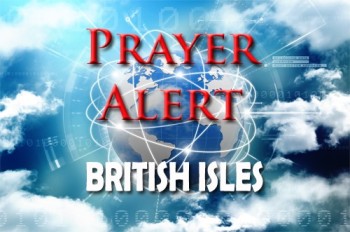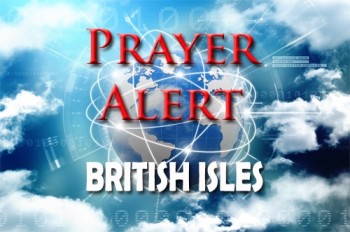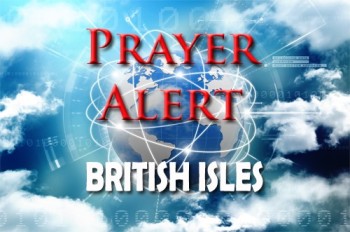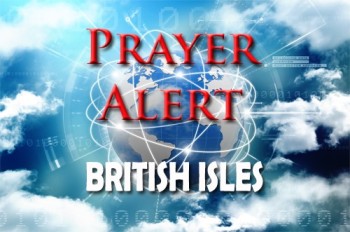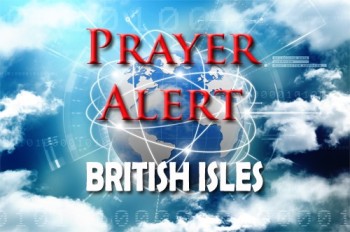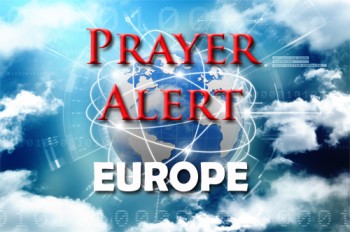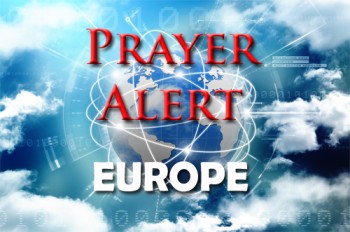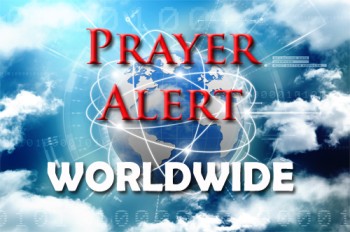30 Days of Prayer for the Muslim World: 28 Feb to 29 March
Christians worldwide are invited to join the annual 30 Days of Prayer for the Muslim World, interceding for revival during Ramadan. Prayer guides for adults and children focus on key Muslim-majority cities and are available online in 33 languages. Participants can also receive daily email prayer prompts. The initiative culminates in One Miracle Night on 27 March - a 24-hour global prayer event focused on 30 unreached megacities, calling for personal revival, revival in the local church, and revival across the Muslim world. Believers are encouraged to sign up, pray, and share this opportunity with their churches and networks, trusting that God will move in response to His people’s prayers.
Starmer in Washington for talks with Trump, focus on Ukraine
Keir Starmer has held his first meeting with Donald Trump. Despite tensions between the White House and Europe, Starmer affirmed his trust in Trump and emphasised the 'special relationship' between the UK and the USA. However, Trump appeared reluctant to commit to a US military backstop for Ukraine, stating that Europe should take the lead. Starmer underscored the importance of a lasting peace with a security guarantee to deter further Russian aggression. While the UK and France are prepared to deploy peacekeeping troops, securing US support remains crucial. In preparation for the talks, the UK pledged to increase defence spending, a key NATO requirement, while maintaining strong ties with both the US and European allies. Starmer reassured the British public that national security remains a top priority, while also highlighting opportunities for job creation in the defence sector. For an assessment of Starmer’s visit, which included an invitation from King Charles for an unprecedented second state visit, see
Health crisis sees some GPs working as Uber drivers
A growing number of qualified GPs in England are unable to find work, with some resorting to jobs such as Uber driving to pay their bills. This crisis has been blamed on chronic underfunding and the rising costs of running GP practices, which has left many surgeries without the resources to hire doctors. A new survey by the British Medical Association found that one in five GPs is considering leaving the profession, while nearly half of those surveyed are looking for work outside the NHS. Some are seeking GP roles abroad, while others are considering leaving healthcare altogether. The government has pledged £889 million to reduce administrative burdens and expand GP recruitment programs, but experts warn this is not a long-term solution. Many doctors remain concerned that rising employer national insurance costs will further squeeze GP practices, potentially leading to a mass exodus from the profession. With demand for GP appointments at an all-time high, medical professionals are warning that unless core funding is significantly increased, the NHS could face a two-tier system, similar to what has happened in dentistry, where more doctors turn to private healthcare instead of the NHS. See
Isle of Man set to approve right to die
The Isle of Man is on course to become the first place in the British Isles to legalise assisted dying for terminally ill adults, as its parliament enters the final stages of debate on the legislation. If passed, the law would allow people over 18 with a prognosis of less than twelve months to live to end their own lives under strict medical supervision. The proposal has sparked strong debate, with supporters arguing it grants dignity to those facing unbearable suffering, while opponents, including some doctors, fear it could lead to coercion and an expansion of euthanasia laws in the future. The UK, Scotland, and Jersey are also considering similar legislation, though their proposals differ in residency requirements and medical oversight. Some doctors on the Isle of Man have warned they may leave the profession if the law is enacted, while others see it as a necessary step for those suffering from painful, terminal illnesses.


